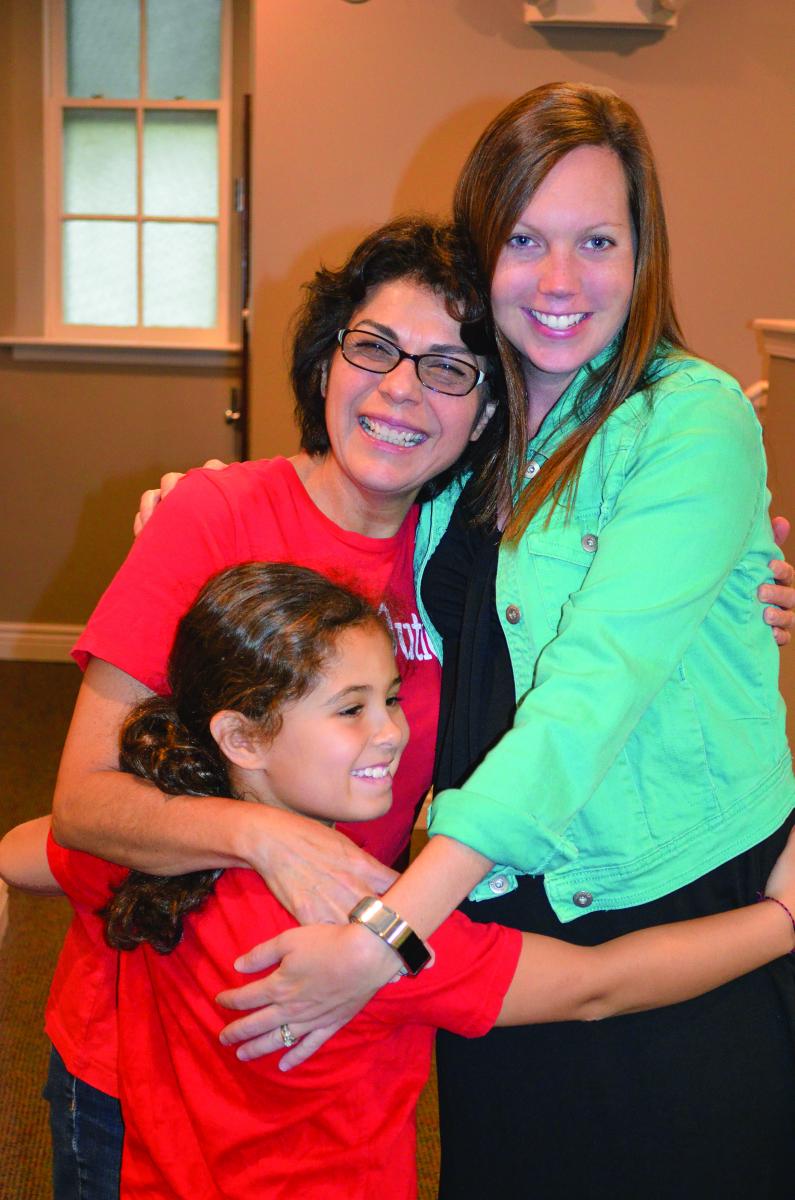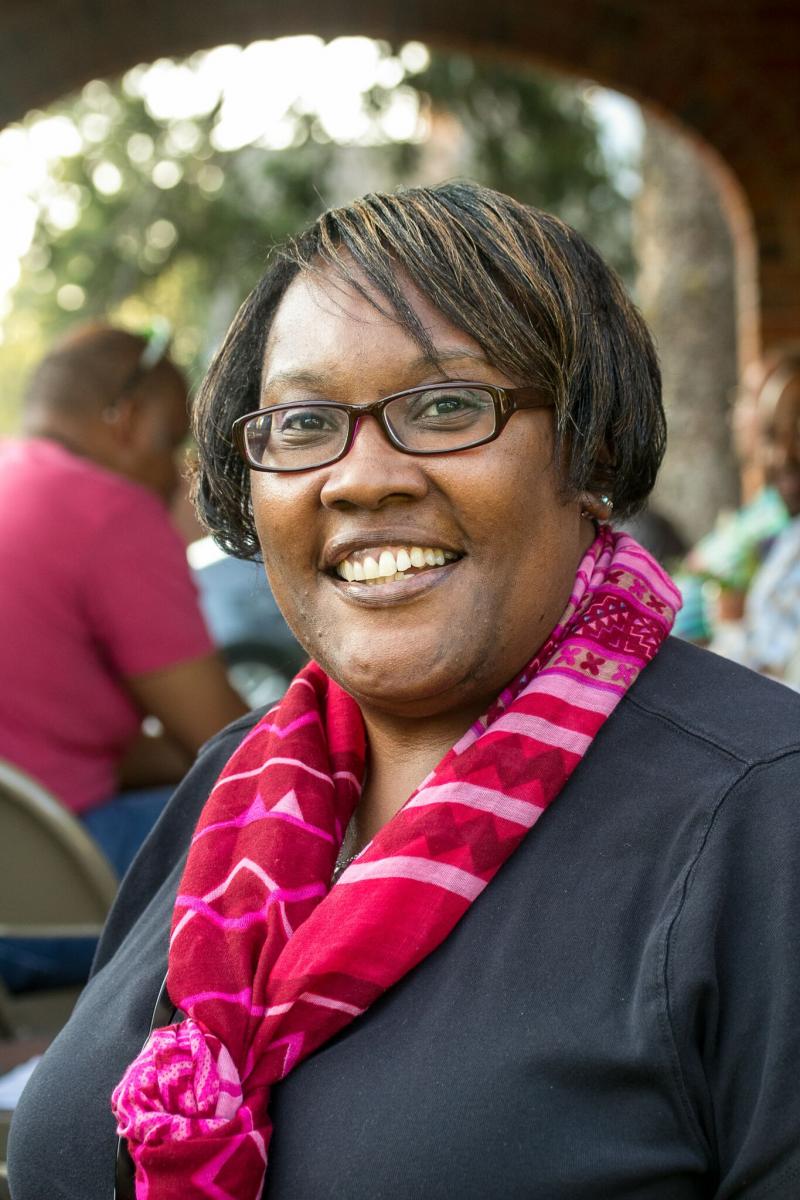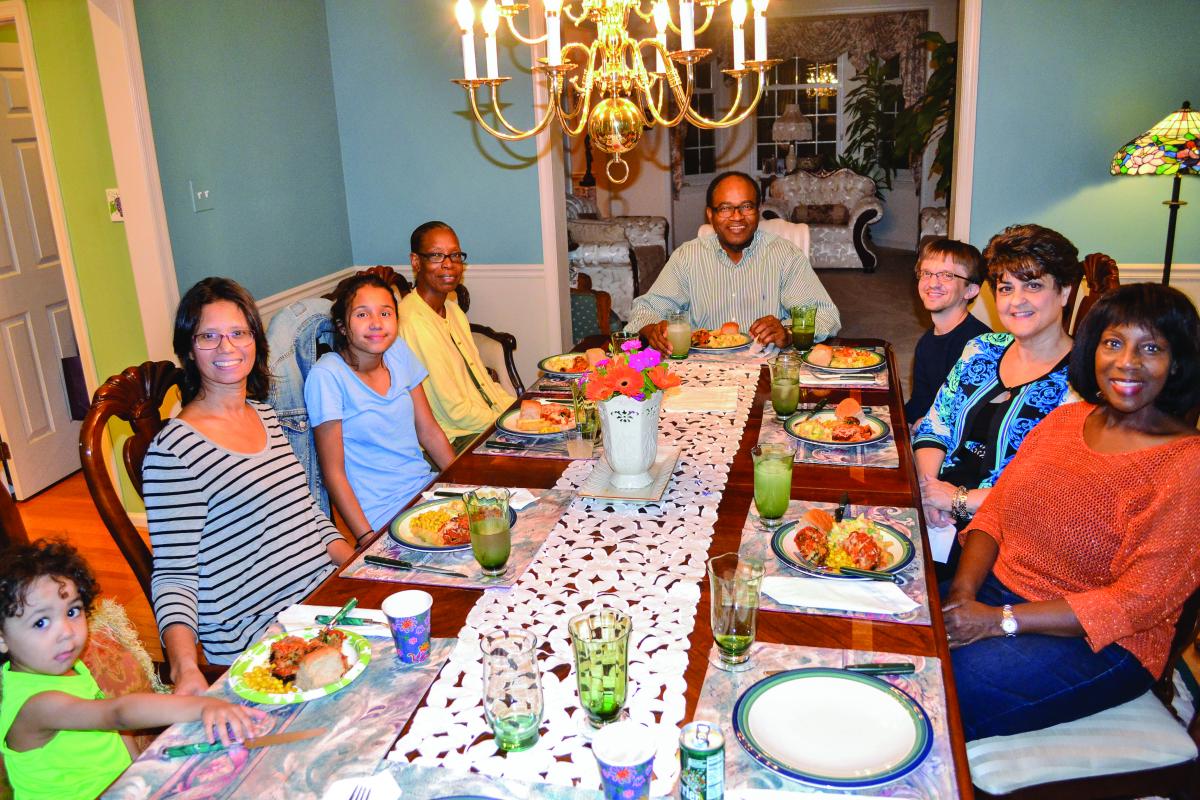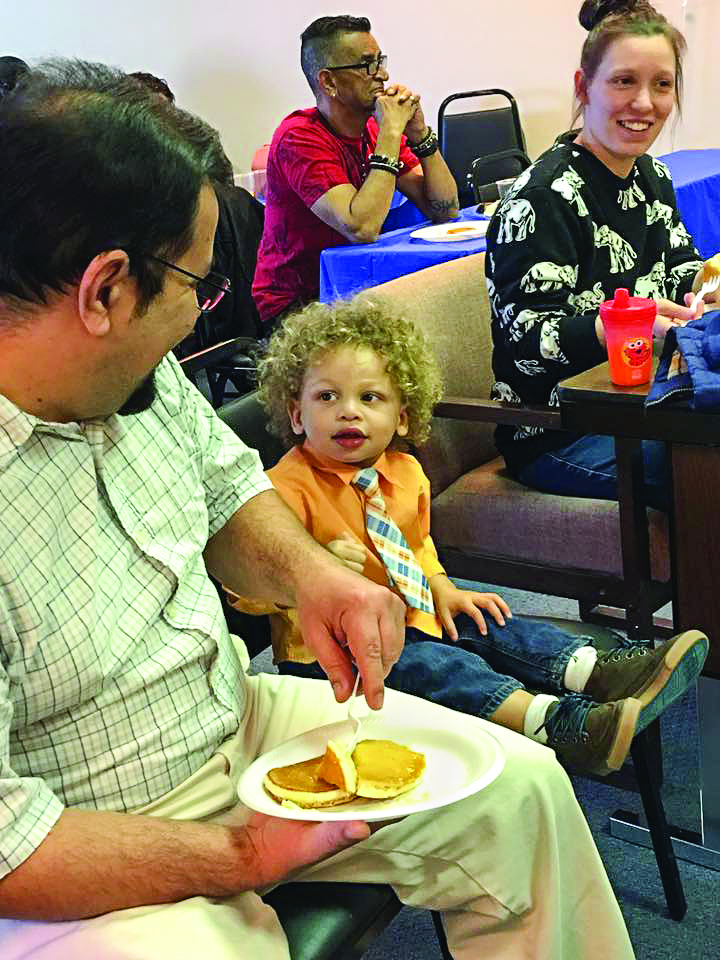 Story by Anna Bartlett
Story by Anna Bartlett
When Keyla Laguna and her family moved to the East Coast, they were shocked at what they found. “It almost seemed like they were dying,” Laguna said of the churches her family experienced. With a daughter in middle school and a son in high school, Laguna (pictured in red T-shirt, with Kaylea Newman, left, and Lauren Penkala) and her husband struggled to integrate their family into their new church community, until one day everything came to a head.
Laguna’s son told her about a Sunday-keeping church many of his classmates attended with lots of youth and activities.
“We had to have that talk about why we don’t go to church on Sunday and why we keep [the] Sabbath,” Laguna said. Her son was frustrated. “I’m so bored at church,” he said. “I feel that we can do so much more.”
A 2014 National Science Foundation (NSF) survey revealed an unprecedented number of Americans reported feeling lonely, with one in four of the respondents saying they had no one to talk with about their personal troubles or triumphs. In the coming and going of the modern world, even church members are experiencing a dwindling sense of community.
Not only does this growing lack of community affect members, it also hurts the church’s ability to minister and grow. If church members do not feel connected, they will not invite others to become part of their congregation. If guests do not see a thriving church community they want to join, they will not come back, shares Rafael Soto, pastor of Potomac Conference’s Richmond area Hispanic churches.
How can churches change this? Several groups in the Columbia Union have focused on building communities where people want to stay. Here’s how they did it.
People Need Meaningful Relationships
After the conversation with her son about the Sunday church, Laguna talked to her pastor, who recommended her family try Pennsylvania Conference’s Grace Outlet (GO) church in Reading.
At GO Laguna experienced a friendly, relaxed, open, atmosphere and instantly felt connected. Members introduced themselves and invited her family to attend social and outreach activities. After the first visit, they knew they had found their community.
“Before Grace Outlet … we felt that we were spiritually dying because we did not find that connection to spiritually grow,” says Laguna. “When we found Grace Outlet, that took a 180 [degree] turn. We have been greatly blessed, and I am [now] excited about Sabbath and going to church every week.”
Under the motto “Connect the Disconnected,” leaders founded Grace Outlet church on the desire to build a community where meaningful relationships, heartfelt worship and mission-focused community service could take place.
“[People] are in search of meaning—meaningful conversations, meaningful relationships and to make a contribution. When they find those things in the church, I believe they’ll stay. When they don’t, I believe they’ll go,” says Kris Eckenroth, former lead pastor.
More Than Church Time
Leaders of Potomac Conference’s Lynchburg (Va.) church realized it was difficult for real fellowship and meaningful interaction to take place solely during the Sabbath worship service, says member Mark Stewart. He participates in PACE (Passionate, Authentic, Committed, Engaged), a program of small groups started by the church that meet mid-week to study the Bible in members’ homes and other locations throughout the community. “As we meet together mid-week in groups of 20 or so, we actually get to know each other’s heartfelt needs,” he says.
 Rhonda Petty (pictured, right), a Baptist church member who participates in PACE, experienced this support when her daughter lost her baby a few days after birth.
Rhonda Petty (pictured, right), a Baptist church member who participates in PACE, experienced this support when her daughter lost her baby a few days after birth.
“I [thought], I’m going to have to go through this trial and this tribulation by myself with my daughter. … The first people to reach out to me were the PACE group. I got a card. I got hugs. I got people [asking] can they do anything for me.”
Petty says the most important thing her PACE group does to create community is provide a safe, supportive space where anyone can share. “I was able to express myself. I was able to express my feelings. If I was hurting, I found out that I didn’t have to hurt alone, that I wasn’t by myself,” she says.
Leaders at Pennsylvania Conference’s Bucks County church in Warminster also realized members needed more than just Sabbath interactions. With 130-160 people attending church services each week, members were getting lost in the crowd and starting to feel isolated, says Keith Ingram, pastor. “Even our own members who get connected often feel this way.”
 Leaders at the church started Guess Who’s Coming to Dinner? (pictured, left), a dinner party where members are matched with other members for a meal at one of their homes.
Leaders at the church started Guess Who’s Coming to Dinner? (pictured, left), a dinner party where members are matched with other members for a meal at one of their homes.
Ingram says the dinner parties, an idea many other churches across the union also use, helped him engage with his church community and get to know more members personally.
Gear Activities to Engage
Pennsylvania Conference’s Engaged church plant in York is located in one of the poorest areas in the city. The leadership team prayed, brainstormed and decided to try something new to reach this demographic: a pancake breakfast every Sabbath morning. The Engaged volunteer team now starts making pancakes at 10 a.m. each week. Other members canvass the nearby streets with signs inviting people for free pancakes. By 10:45 volunteers are serving pancakes. The worship service starts at 11, but the pancakes don’t end until the last attendee leaves the building (pictured, below).
“It’s a rolling ministry of we’ll feed you, fill your belly, and [you] learn something about Jesus at the same time,” Charlie Pifer, the leader of the group, says. Everything is intentionally geared to engage people, he adds, including the worship service, which starts with a few songs, followed by a five- to eight-minute sermon, then more songs, prayer and another sermonette. Although Pifer says that at first making these changes were uncomfortable to longtime Adventists, the new format has created a community in which people want to stay.
 “We have the same amount of [visitors] come for pancakes as Adventists who come for church,” Pifer says. “People stay engaged. They don’t get bored, they don’t stand up and leave. They are willing to sit there because the service moves.”
“We have the same amount of [visitors] come for pancakes as Adventists who come for church,” Pifer says. “People stay engaged. They don’t get bored, they don’t stand up and leave. They are willing to sit there because the service moves.”
The meeting room is also set up for interaction, including a kid zone with small chairs, pillows, crayons and coloring books. Pifer shared the story of a father who came in with two small children. “He said that he’s tried to bring his kids to church, but most times he can never stay for the whole time” because the children get bored and antsy. Pifer continued, “[Attending Engage] was the first time he was able to stay for a whole service and not have to leave early.”
Pifer believes that the secret to an engaged community is a spiritually committed leadership team that is willing to get uncomfortable in order to follow God’s leading.
“Our core leadership team is intentional about getting together and praying every week, studying the Bible and looking for the Holy Spirit’s leadership. We found that when we got busy doing church and stopped focusing on that, we were in a decline. We weren’t really impacting the community. But when we changed that around, we’ve had some people tell us that they feel God’s spirit. There is a love, an atmosphere between us all that is appealing to them.”

